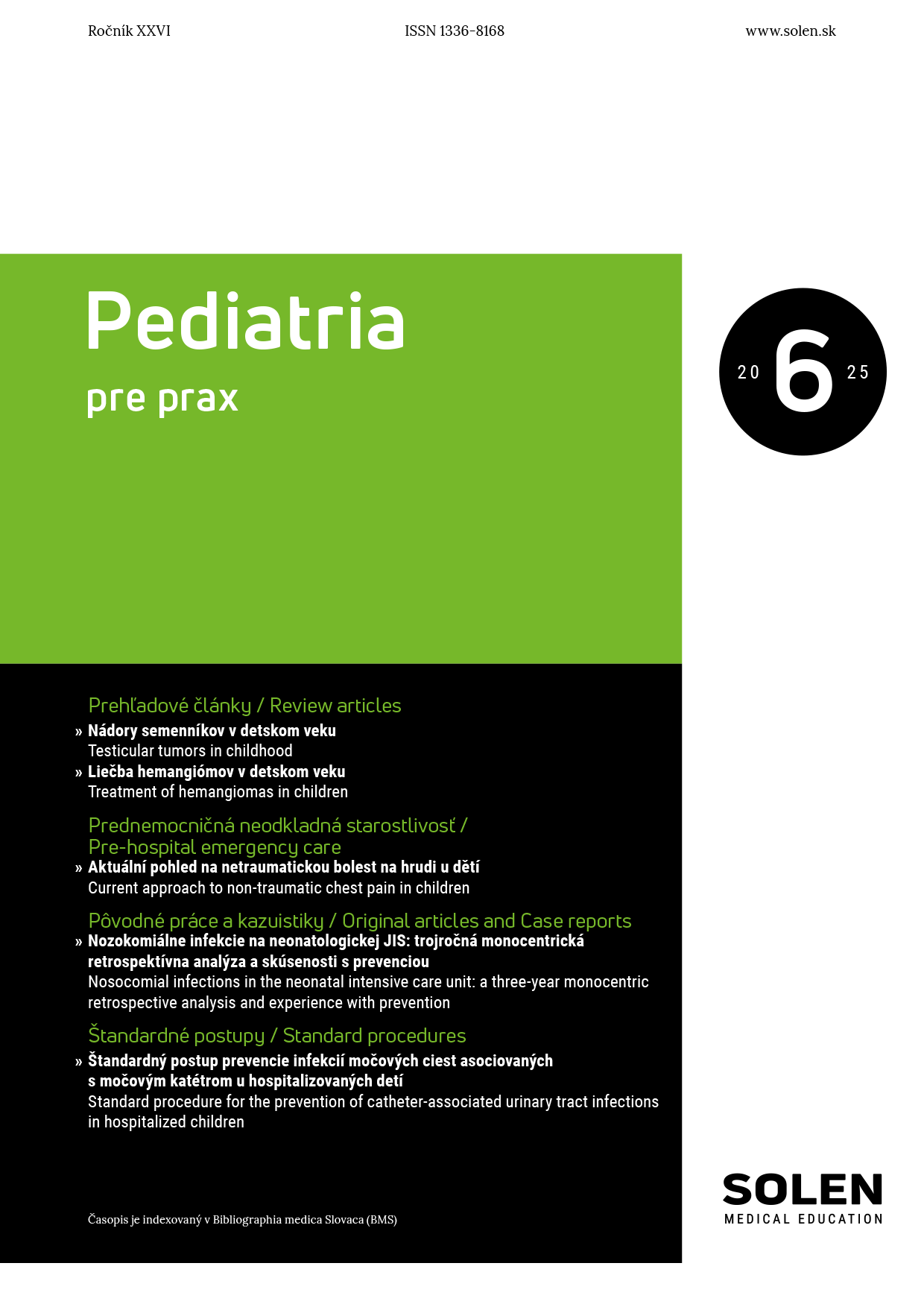Pediatria pre prax 2/2025
Tonsillopharyngitis and Streptococcus pyogenes: Reinfection or carrier state?
Tonsillopharyngitis caused by beta-hemolytic Group A Streptococcus (Streptococcus pyogenes – GAS) is a common infection in schoolaged children. The main clinical symptoms include a sudden onset of sore throat, fever, fibrinopurulent exudate on the tonsils, and cervical lymphadenitis. The incubation period ranges from 2 to 5 days. Accurate diagnosis is crucial for distinguishing between bacterial and viral pharyngitis. The gold standard for confirmation is culture detection of S. pyogenes, or alternatively, a rapid antigen test followed by culture verification. Penicillin remains the first-line treatment in the absence of contraindications, as it is the most effective and safest antibiotic. For patients allergic to penicillin, macrolide antibiotics such as azithromycin or clarithromycin can be used. Given that asymptomatic colonization in children can reach up to 20%, it is important to consider the possibility of recurrent viral infections in chronic carriers. Recurrent episodes of confirmed streptococcal tonsillopharyngitis may be caused by multiple factors, including reinfection, inadequate treatment duration, improper antibiotic selection, or local factors at the infection site, all of which require an individualized approach to diagnosis and therapy. Prevention, precise diagnostics, and targeted antibiotic treatment, when necessary, are essential for reducing complications and minimizing the risk of antibiotic resistance, ultimately ensuring better management of this condition.
Keywords: tonsillopharyngitis, Streptococcus pyogenes, penicillin, carrier state, reinfection

















